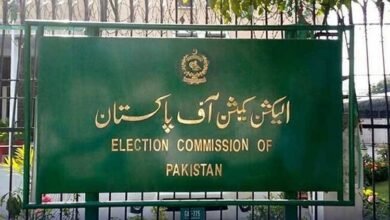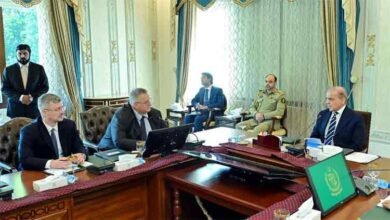ISLAMABAD:
K-Electric (KE) has claimed that it has achieved most of the targets, like significantly slashing power outages, curtailing losses and investment of around Rs550 billion for system improvement, set after its privatisation 18 years ago.
Speaking at a public hearing on Tuesday, representatives of the private power utility pointed out that only 6.6% of area in its jurisdiction had been exempt from load-shedding in 2005, but “now 71% of the area in Karachi is free from outages”.
The National Electric Power Regulatory Authority (Nepra) held the public hearing on a petition filed by KE for the grant of a non-exclusive distribution and supplier licence for the next 20 years to cover its service territory including Karachi, Dhabeji, Gharo in Sindh and Hub, Bela and Vinder regions in Balochistan.
The hearing was attended by various stakeholders such as Karachi industrialists and the general public. KE’s senior leadership – Chief Financial Officer Aamir Ghaziani, Chief Distribution Officer Fawad Gilani and Chief Marketing and Communications Officer Sadia Dada – represented the company to address the questions framed by the regulator.
Speaking about the expectations and results of privatisation, KE shared that a capital expenditure of around Rs544 billion ($4.4 billion) was made for improving power supply across Karachi.
This resulted in an addition of 1,957 megawatts of generation capacity and improvement of 12 percentage points in fleet efficiency from 30% in 2005 to 42% in 2023.
As the most efficient 900MW re-gasified liquefied natural gas (RLNG) power plant has been commissioned in the last quarter of financial year 2023, the fleet efficiency will increase to 49% when the plant is operated for the entire year. KE management shared that since privatisation, the company’s transmission and distribution capacity had doubled while line losses had gone down by half.
Read: Reduced load shedding linked to high recovery
Most of the conversation revolved around tariffs and seeking tariff benefits for Karachi-based industries. Many participants expressed satisfaction with the performance of KE network and associated services while others asked for improved strategies.
In response to questions about improving the reliability of services, the company highlighted that it had invested in IT and tech-based interventions to modernise infrastructure and improve service delivery. These include initiatives such as the use of Geographical Information System (GIS) and deployment of 60,000 smart meters enabling greater visibility over power consumption trends.
KE CFO Aamir Ghaziani stated, “We remain committed to providing customers with the best-quality services. Our Rs484 billion upcoming investment plan and proposed addition of over 1,200MW renewable energy are indicative of this.”
The CFO pointed out that financing cost had increased due to a higher policy rate, adding that borrowing cost went up to 26%. He stated that there had also been recovery impact due to higher inflation that hit people’s affordability. “Consumer tariff went up around 110% in one and a half year, which also affected customers,” he added. “These socio-economic issues have resulted in a loss for the company.”
Usman Ali, an intervener, said that load-shedding should be based on the use of pole-mounted transformer (PMT) and feeders should not be shut down where losses were high. Other interveners highlighted billing issues and called for their resolution.
Imran Shahid, who represented the Jamaat-e-Islami, said that KE was generating expensive electricity that burdened the consumers, adding that there was a commitment at the time of privatising the utility that no subsidy would be provided in the future.
“But there is still subsidy involved that is a burden on the national exchequer,” he said.
He blamed Nepra for not releasing an industry report, which made the interveners unable to analyse the performance of the power sector. Though all interveners agreed that the company’s licence should be renewed, they said that the power generation cost was higher and it should be reduced.
Published in The Express Tribune, November 29th, 2023.
Like Business on Facebook, follow @TribuneBiz on Twitter to stay informed and join in the conversation.







